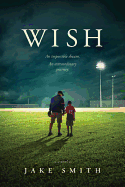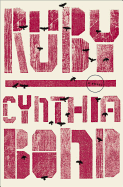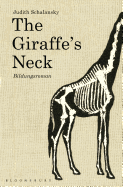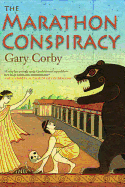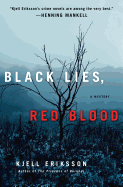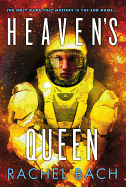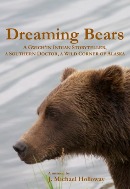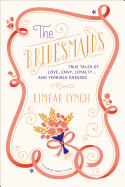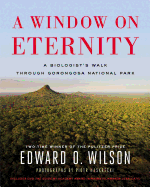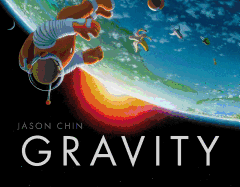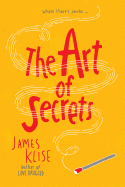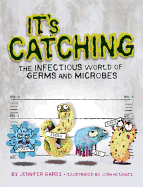.jpeg) Astra Taylor is a Canadian-American documentary filmmaker, writer and musician, best known for her 2005 film, Zizek!, about the Slovenian philosopher Slavoj Žižek, and her 2008 film, Examined Life. Her new book, The People's Platform: Taking Back Power and Culture in the Digital Age (Metropolitan), is an eye-opening look at media consolidation, the rapid growth of the Internet and the increased interactivity of its users, who have become equal parts consumer and creator.
Astra Taylor is a Canadian-American documentary filmmaker, writer and musician, best known for her 2005 film, Zizek!, about the Slovenian philosopher Slavoj Žižek, and her 2008 film, Examined Life. Her new book, The People's Platform: Taking Back Power and Culture in the Digital Age (Metropolitan), is an eye-opening look at media consolidation, the rapid growth of the Internet and the increased interactivity of its users, who have become equal parts consumer and creator.
The sort of paradigm shifts that took place in media consolidation 20 or even 10 years ago seem quaint today. How much of people's willingness to hand over their private information is a factor of the Internet being harnessed to enable these rapid shifts, and how much is people not caring what sites know about them?
Great question. It is indeed amazing how much consolidation there is in the media landscape. It seems like there's always some gigantic corporate fusion on the horizon. The thing is, it's actually an issue people care about. Whenever one of these mergers is on the table citizens call their representatives and sign petitions in droves, but they--that is to say, the people, all of us--simply don't have the lobbying power of these major corporations, which are only growing and getting deeper pockets in the process of combining and consolidating. The revolving doors of Washington don't help matters. Individuals work in government and after a stint they go work for the people they used to regulate, where they get paid a whole lot more. It's a vicious cycle.
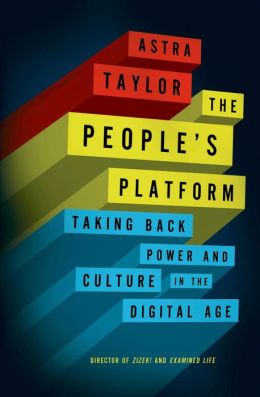 Anyway, as your question indicates, there's a paradox in the contemporary mediascape that I underscore in the book, which is that even as this consolidation is happening and the giants are growing larger and larger, our relationship with media doesn't really reflect that on an immediate level--to the contrary, our relationship to media seems more self-directed and individualized than ever before. After all, no one can tell you what to click on, websites tailor their content to your preferences, and everyone has their own private screen they don't have to share with anyone else, etc. But these incredibly personalized services typically mean relying on centralized vendors and services, like Apple or Amazon or Verizon, that often control the hardware we are using and the content we consume, so there's a kind of vertical integration happening. What's more, the fact that we can have these personalized experiences online or that we can visit any website is used to justify consolidation in the digital sphere (when Google was being investigated by the FTC for anti-trust stuff company spokespeople would respond by saying "competition is a click away," which echoes comments made by Rupert Murdoch when he was trying to expand his empire--he basically said, who cares how many papers or TV networks I own now that the Internet exists). Somehow we need to be able to comprehend personalization and corporatization as two sides of the same coin, and not get distracted by the seeming bounty of choice.
Anyway, as your question indicates, there's a paradox in the contemporary mediascape that I underscore in the book, which is that even as this consolidation is happening and the giants are growing larger and larger, our relationship with media doesn't really reflect that on an immediate level--to the contrary, our relationship to media seems more self-directed and individualized than ever before. After all, no one can tell you what to click on, websites tailor their content to your preferences, and everyone has their own private screen they don't have to share with anyone else, etc. But these incredibly personalized services typically mean relying on centralized vendors and services, like Apple or Amazon or Verizon, that often control the hardware we are using and the content we consume, so there's a kind of vertical integration happening. What's more, the fact that we can have these personalized experiences online or that we can visit any website is used to justify consolidation in the digital sphere (when Google was being investigated by the FTC for anti-trust stuff company spokespeople would respond by saying "competition is a click away," which echoes comments made by Rupert Murdoch when he was trying to expand his empire--he basically said, who cares how many papers or TV networks I own now that the Internet exists). Somehow we need to be able to comprehend personalization and corporatization as two sides of the same coin, and not get distracted by the seeming bounty of choice.
What that means, to circle back to your question, is that our willingness to hand over private information is very much connected to the issue of consolidation, because these companies have a vested interest in tracking and tabulating our media habits so they can better target and market to us down the road. Personalization is profitable. Of course you're also right that people willingly give over lots of information, which can make it seem as though they don't have any problems with the current arrangement. But polls show that people are nowhere near as glib about handing over their personal data as someone like Mark Zuckerberg makes them out to be. The guy has a vested interest in making it seem like no one cares about privacy any more.
There's a subtle insidiousness to the way we allow ourselves to lose hours of time to the Internet. How can we tell where the line is between a healthy and unhealthy Internet use?
This relates to my comments about digital personalization. We feel like we are in charge of our media destinies, even if we are totally dependent on this very centralized, corporatized, and consolidated infrastructure. One consequence of this is that we have this feeling of agency and purposefulness when we're online, even if we have surfer's remorse when it's over.
That said, I worry about the frame of healthy and unhealthy and am not sure it's the most productive way to start the discussion. Not that I don't completely identify with the problem you are getting at. I will confess that I have definitely crossed the line into what I consider unhealthy territory, entering a habitual relationship where I end up looking at my phone without consciously intending to, or where I start out doing online research and then wake up in a haze hours later, having gotten sucked into following the latest Twitter feud or just reading random articles or whatever. The fact that checking e-mail can often take place before drinking coffee--that's a sign of one major addiction usurping another!
But mainly I'm wary of healthy/unhealthy because I really think it's imperative we try to look at the bigger picture. If the book has one aim, it's to shift the focus from individuals to the broader social field; in other words, making it less about whether people are "addicted" to their gadgets or social media and more about the underlying economic forces that shape the development of those objects and services.
I will offer some practical tips for info overload and self-discipline, though. Working on this book meant I had to plug into the tech news firehose, which meant I often felt like I was drowning, and I found some filtering tools out there really useful. News.me culls through your Facebook and Twitter and finds the most popular links, which can be nice--it's easier to read one daily digest than keep up with random updates from gazillions of people. Also the "read it later" feature is priceless. Now I log on and graze and mark things to pay real attention to in the future, instead of entering that muddled state where I am basically skimming everything and retaining nothing.
A good deal of your book advocates a change in the way people think about the Internet and how we use it. If you could wave a magic wand and change one concrete thing about the whole system tomorrow, what would that one thing be?
A magic wand! Well, with enormous power comes enormous responsibility, so I'd have to ponder this question for quite a while. I might do something drastic like make Google a public utility. We talk a lot about the Internet as a library, a repository of precious knowledge that everyone is entitled to access, but real libraries are funded by taxpayers and not advertisers, and that's a tremendous distinction. Of course, real libraries are seeing their budgets slashed in most states, so the problem I'm getting at goes way beyond the Internet--I'm talking about our society's willingness to hand over crucial public goods to private interests. Ultimately that's what I wish my imaginary wand could change. --Matthew Tiffany, writer for Condalmo and psychotherapist
Astra Taylor: Our Relationship to Media
 Jill Mullin is a New York City behavior analyst whose amazing book, Drawing Autism (Akashic), took form when she met Glenn Russ, an individual diagnosed with autism spectrum disorder (ASD), who liked to draw stylized stick figures depicting The Temptations and Jackson 5, his favorite bands. Inspired, Mullin began to solicit artwork from other individuals also on the spectrum.
Jill Mullin is a New York City behavior analyst whose amazing book, Drawing Autism (Akashic), took form when she met Glenn Russ, an individual diagnosed with autism spectrum disorder (ASD), who liked to draw stylized stick figures depicting The Temptations and Jackson 5, his favorite bands. Inspired, Mullin began to solicit artwork from other individuals also on the spectrum.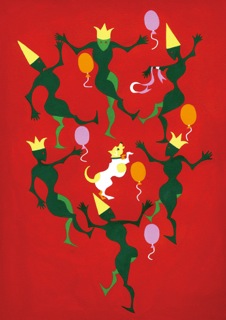
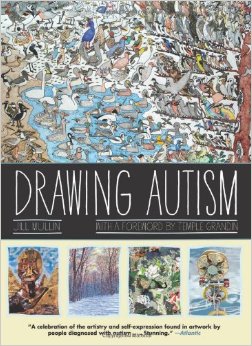 Asked whether Drawing Autism aims to highlight differences on the spectrum or blur the esthetic divide between "typical" and ASD artists, Mullin acknowledged that her goal embraces this delicate paradox: "Much of the artwork in the book is compelling in its own right. If you saw it hanging on a wall or in a book and knew nothing about the artist's background, it would still catch your eye. As a professional in the field, I know exactly what it means to say that autism is a spectrum disorder. But for those unfamiliar with the term, I think the book serves as a great point entry into understanding how ASD manifests differently in every individual." --Thuy Dinh, editor, Da Mau magazine
Asked whether Drawing Autism aims to highlight differences on the spectrum or blur the esthetic divide between "typical" and ASD artists, Mullin acknowledged that her goal embraces this delicate paradox: "Much of the artwork in the book is compelling in its own right. If you saw it hanging on a wall or in a book and knew nothing about the artist's background, it would still catch your eye. As a professional in the field, I know exactly what it means to say that autism is a spectrum disorder. But for those unfamiliar with the term, I think the book serves as a great point entry into understanding how ASD manifests differently in every individual." --Thuy Dinh, editor, Da Mau magazine


.jpeg) Astra Taylor is a Canadian-American documentary
Astra Taylor is a Canadian-American documentary  Anyway, as your question indicates, there's a paradox in the contemporary mediascape that I underscore in the book, which is that even as this consolidation is happening and the giants are growing larger and larger, our relationship with media doesn't really reflect that on an immediate level--to the contrary, our relationship to media seems more self-directed and individualized than ever before. After all, no one can tell you what to click on, websites tailor their content to your preferences, and everyone has their own private screen they don't have to share with anyone else, etc. But these incredibly personalized services typically mean relying on centralized vendors and services, like Apple or Amazon or Verizon, that often control the hardware we are using and the content we consume, so there's a kind of vertical integration happening. What's more, the fact that we can have these personalized experiences online or that we can visit any website is used to justify consolidation in the digital sphere (when Google was being investigated by the FTC for anti-trust stuff company spokespeople would respond by saying "competition is a click away," which echoes comments made by Rupert Murdoch when he was trying to expand his empire--he basically said, who cares how many papers or TV networks I own now that the Internet exists). Somehow we need to be able to comprehend personalization and corporatization as two sides of the same coin, and not get distracted by the seeming bounty of choice.
Anyway, as your question indicates, there's a paradox in the contemporary mediascape that I underscore in the book, which is that even as this consolidation is happening and the giants are growing larger and larger, our relationship with media doesn't really reflect that on an immediate level--to the contrary, our relationship to media seems more self-directed and individualized than ever before. After all, no one can tell you what to click on, websites tailor their content to your preferences, and everyone has their own private screen they don't have to share with anyone else, etc. But these incredibly personalized services typically mean relying on centralized vendors and services, like Apple or Amazon or Verizon, that often control the hardware we are using and the content we consume, so there's a kind of vertical integration happening. What's more, the fact that we can have these personalized experiences online or that we can visit any website is used to justify consolidation in the digital sphere (when Google was being investigated by the FTC for anti-trust stuff company spokespeople would respond by saying "competition is a click away," which echoes comments made by Rupert Murdoch when he was trying to expand his empire--he basically said, who cares how many papers or TV networks I own now that the Internet exists). Somehow we need to be able to comprehend personalization and corporatization as two sides of the same coin, and not get distracted by the seeming bounty of choice.